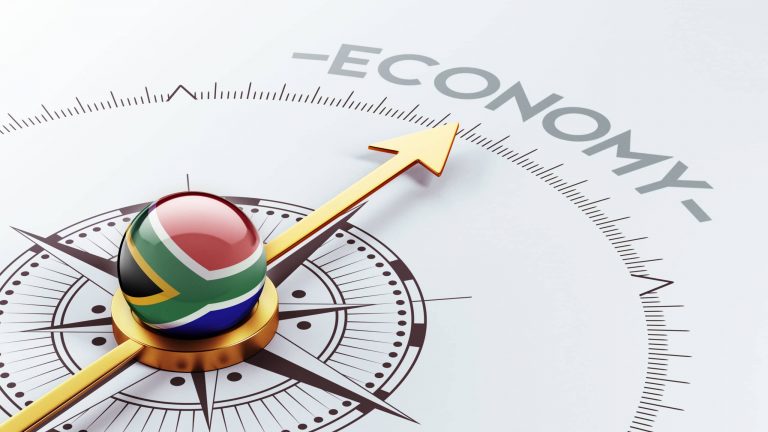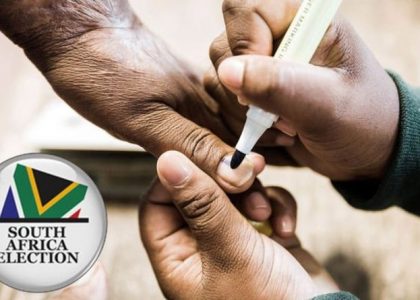As we enter the new year, South Africa finds itself at a critical juncture in its economic trajectory. The challenges faced in 2023 have set the stage for a bumpy ride in 2024, with uncertainties looming over the forthcoming elections and the country’s macroeconomic difficulties. However, amidst the obstacles, there are also signs of potential growth and positive developments on the horizon.
In this article, we will provide an overview of various factors that will shape South Africa’s economic performance in 2024, including trends in exports, consumer spending, and investment. We will also explore the impact of global economic trends, geopolitical developments, and the effective implementation of reform commitments by the government.
Macroeconomic Challenges in 2023
To understand the economic outlook for 2024, it is crucial to examine the challenges that South Africa faced in the preceding year. The third quarter of 2023 saw a 0.2 percent quarter-on-quarter decline in GDP, which was indicative of the macroeconomic challenges the nation has been facing. Inflation and slow economic growth have been exacerbated by increased Eskom blackouts, bottlenecks in the Transnet, and skyrocketing fuel and food prices. These challenges have been well-documented and have significantly impacted the economy.
Global Economic Trends and Geopolitical Developments
South Africa’s economic outlook for 2024 will not exist in isolation but will be influenced by global economic trends and geopolitical developments. The year 2024 will witness over 40 elections worldwide, involving approximately four billion people, highlighting the global state of democracy. While Western economies may experience better-than-expected performance, challenges and uncertainties persist, particularly with interest rates remaining higher for longer in many economies.
Geopolitical risks add to the complexities, with concerns arising from events such as Houthi attacks on Red Sea shipping, which have raised worries about supply chain instability. The International Monetary Fund (IMF) forecasts a slight easing in world economic growth in 2024, with notable divergences between regions and countries.
South Africa’s Economic Performance in 2024
Against the backdrop of these challenges and global trends, South Africa’s economic performance in 2024 will be driven by several key factors, including exports, consumer spending, and investment. Despite the difficulties faced in 2023, there are promising signs on the horizon. First and foremost, evidence suggests that inflation rates are easing, with both the Consumer Price Index (CPI) and Producer Price Index (PPI) showing sharp declines in November 2023. Inflation is now well within the target range set by the South African Reserve Bank (SARB). The potential for lower interest rates arises, as borrowing costs may begin to ease later in the year, leading to increased consumer and business activity.
Positive Developments and Economic Collaboration
In recent months, South Africa has seen positive developments that have the potential to impact its economic outlook in 2024. The successful hosting of international events such as the BRICS and African Growth and Opportunity Act (AGOA) summits in Johannesburg has created opportunities for economic collaboration and business growth. Moreover, there is increasing certainty that a revised AGOA will be agreed upon by the US administration when it comes up for renewal in 2025. Additionally, expanding the BRICS from five to 11 members strengthens South Africa’s voice in global economic forums. These developments bode well for increased trade and investment opportunities in the coming year.
Persisting Challenges and Domestic Headwinds
While there are positive developments, South Africa will continue to face challenges and domestic headwinds in 2024. The economy is still recovering from a worse-than-expected negative GDP growth outcome in the third quarter of 2023. This, coupled with intensified Eskom blackouts and contractions in household finances, poses obstacles to economic growth.
The flat performance of private fixed investment also raises concerns as it is a crucial driver of future growth and employment. To achieve sustained job-rich growth, increasing total fixed investment, especially in private fixed capital formation, is imperative. However, the current levels of investment remain below the target set by the National Development Plan.
Deteriorating Public Finances and Fiscal Outlook
Another significant challenge for South Africa’s economic outlook in 2024 stems from the deterioration in public finances, as highlighted in the Medium-Term Budget Policy Statement (MTBPS) in November 2023. Several risks identified in the MTBPS, including weak growth, unfunded spending pressures, and contingent liabilities, need to be addressed to restore the fiscal balance without resorting to unsustainable borrowing or damaging tax increases. The upcoming budget in February will be crucial in addressing these risks and setting a course for fiscal stability.
Political Uncertainty and the 2024 Elections
Political uncertainty adds a layer of complexity to South Africa’s economic outlook for 2024, with the upcoming elections being a key risk factor. Historically, elections have been associated with increased policy uncertainty, and the 2024 elections are expected to be no different. The governing African National Congress (ANC) party’s drop in popularity and the emergence of new opposition formations contribute to a more competitive and volatile political environment. The possibility of coalition governments further adds to the unpredictability. These uncertainties, combined with existing levels of policy uncertainty, create uncharted waters for the economy and businesses to navigate.
Potential for Economic Recovery and Positive Factors
Despite the challenges and uncertainties, there is potential for economic recovery and positive factors that can impact South Africa’s economic performance in 2024. The easing of inflation and the potential for lower interest rates provide relief to businesses and consumers. Additionally, the gradual resolution of Eskom’s load-shedding issues and the approval of the Freight Logistics Roadmap offer prospects for improved energy security and enhanced global competitiveness.
The growth of the tourism industry remains a strong driver of economic activity. While the risks to the growth outlook are balanced, it is crucial to address the challenges and leverage these positive factors to promote sustainable and inclusive economic growth.
Addressing Infrastructural Challenges
Infrastructural challenges remain a critical aspect of South Africa’s economic outlook for 2024. The logistics and power crises, along with crime, continue to hinder economic growth. Addressing these challenges requires concerted efforts from the government and relevant stakeholders. Investments in infrastructure, particularly in the energy sector, are crucial to ensure a stable and reliable power supply. Enhancing security measures and combatting organized crime will contribute to a more attractive investment environment. By addressing these infrastructural challenges, South Africa can unlock its economic potential and foster long-term growth.
Sources: Investec BusinessLive News24 Moneyweb




